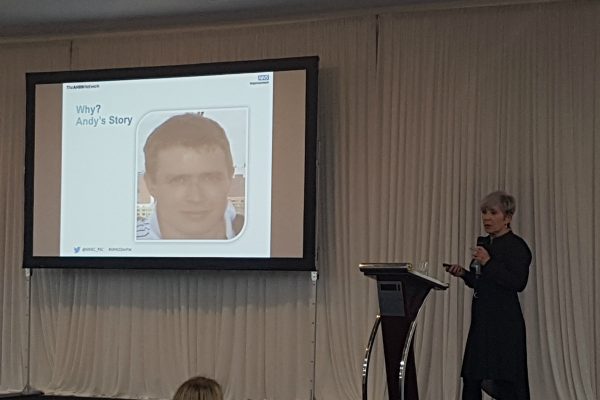This website uses cookies so that we can provide you with the best user experience possible. Cookie information is stored in your browser and performs functions such as recognising you when you return to our website and helping our team to understand which sections of the website you find most interesting and useful.
10 Feb 2022
Latest activity and updates from the Patient Safety Collaborative Workstreams – February 2022
England’s 15 Patient Safety Collaboratives (PSCs) play an essential role in identifying and spreading safer care initiatives from within the NHS and industry, ensuring these are shared and implemented throughout the health and care system.
PSCs are funded and nationally coordinated by NHS England and NHS Improvement, and hosted locally by the Academic Health Science Networks (AHSNs). Health Innovation Manchester hosts the Greater Manchester and Eastern Cheshire Patient Safety Collaborative.
PSCs can work directly with local teams, supporting them to make sure they have the right skills and resources to implement improvements. PSCs can also share good practice across the health system, focus on people-centred care and build relationships with NHS staff, business and academia to stimulate innovation and improvement.
Managing Deterioration
In November we welcomed Wendy Gibbs to the team, an experienced care home professional, who is managing the roll out of Restore 2 and Restore 2 mini across GM. She has been very busy liaising with all the localities and supporting homes with training to spot and communicate the early signs of deterioration in care home residents
We also welcomed Anne Cotterall to the team who has been supporting the roll out of GM wide Patient Safety Networks to support in managing deterioration and in the care home spaces. Again, working very closely with the localities to ensure the networks benefit the GM workforce and do not duplicate or overlap with existing networks.
Medicines
Despite a very challenging year for the care home sector, in 2021, we successfully got 2 cohorts of care home managers through safety champions training. A select number of these homes were supported to implement quality improvement projects in their homes to increase quality improvement capacity in an overlooked sector of the health and social care system. The support for cohort 2 continues until April 2022.
Maternity and Neonatal
All study days have now taken place for the Patient Safety Practitioner Programme, our celebration event will take place on the 17th February 2022 where teams will present back their improvement journey. Improvements have been made across the majority of our participating maternity and neonatal unit, supported via the programme. Given the challenges of the previous year we are very pleased with the overall level of commitment. As a result of the programme Stockport NHS FT have reduced term admissions to NNU as a result of improving processes around Cardiotocography (CTG) monitoring, Northern Care Alliance NHS FT (Oldham) have reduced admissions to the neonatal unit for term babies by expanding their transitional care provision, Wrightington, Wigan & Leigh have improved risk assessments at each face to face antenatal contact and Manchester FT are testing a new neonatal risk assessment tool which helps identify babies at earliest opportunity who need support from neonatal specialist teams.
We are currently working with our Local Maternity and Neonatal System (LMNS) partners to test approaches to prescribing Omega-3 supplementation to women at higher risk of preterm birth (evidence suggests omega-3 can reduce the risk of preterm birth less than 34 week by 42%). We have developed a draft Standard Operating Procedure which will use to inform our testing over a 6 month period from April 2022 . Initially the the supplement will be given to women via the preterm birth clinic across 2 Manchester FT sites (Oxford and Wythenshawe) with plans to identify other Greater Manchester and Eastern Cheshire maternity units.
We are working to adopt and spread the Birmingham Symptom-Specific Obstetric Triage System (BSOTS) across our Local Maternity and Neonatal System. The system helps to better assess and treat pregnant women who attend hospital with pregnancy related complications or concerns. A task and finish group/learning network has been established to share learning and support implementation of the system.
Mental Health
HInM are engaging with five mental health wards from across the Greater Manchester system. The focus is the Reducing Restrictive Practice element of the Mental Health Safety Improvement Programme (MHSIP). These wards are from a variety of settings including Psychiatric Intensive Care Unit (PICU), secure, mixed and step down. This work is driven through quality improvement methodology and is collaborative in nature ensuring the involvement of patients carers and staff.
Current areas of focus include handovers, incident hotspots and zoning, violence and the Dynamic Appraisal of Situational Aggression (DASA) tool.
*The DASA is a seven-item observer-rated actuarial risk assessment instrument that is used to assess the likelihood of imminent aggression (within the next 24 hours) in mental health inpatient settings.
Adopt and Spread
Despite the unprecedented challenges that the acute respiratory teams faced, engagement with the quality improvement programme was high. We co-developed guidance to ensure that there was a consistent approach across GM to completing the NACAP audit. We have planned training to support both respiratory teams and wider clinical staff working with respiratory patients for the remainder of the quarter and into the new financial year.
In summer 2021, we supported the national Patient Safety Collaborative team by conducting a regional stocktake of the Emergency Laparotomy. We are supporting the Innovation Agency in running a region wide meeting (Provisionally at the end of March) to celebrate the good work done so far and look to the future for providing Emergency Laparotomy care going forward.




